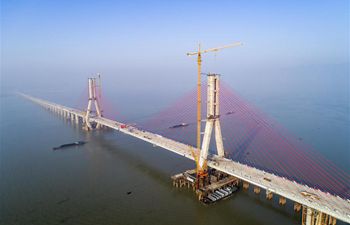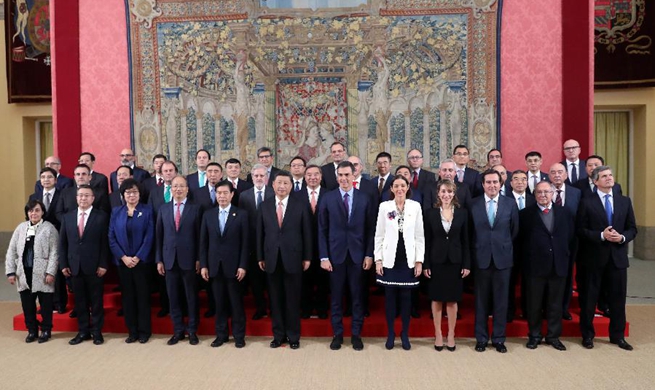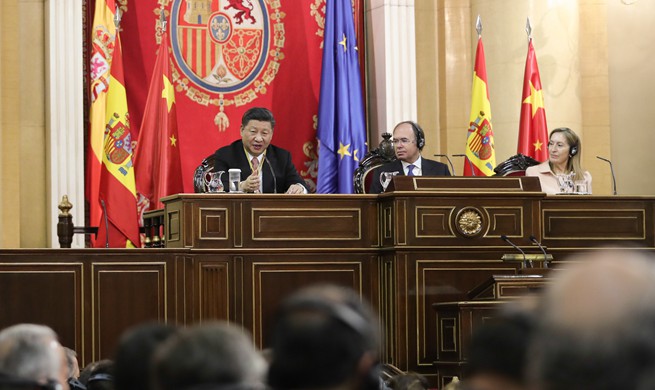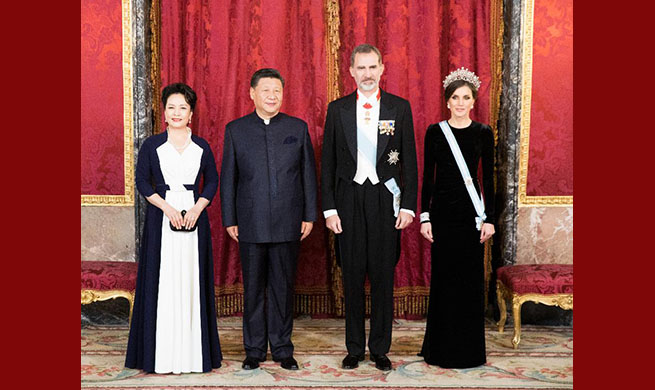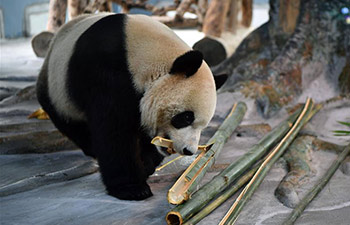BEIJING, Nov. 29 (Xinhua) -- With the Group of 20 (G20) Buenos Aires Summit right around the corner, trade experts have called for joint efforts from major economies to support and safeguard multilateral trading in response to increasing challenges posed by protectionism and unilateralism.
This year's meeting, themed "building consensus for fair and sustainable development," runs from Friday to Saturday, in Argentina.
Among a wide range of issues on the table for the gathering of leaders of G20 members, the 13th since the first one took place in 2008 in response to the global financial crisis, global trade will be in the spotlight.
"The world hopes G20 members can remain cohesive and proactive, hold open, in-depth and constructive dialogue, and inject new impetus to global economic and trade growth," said Zhang Yuyan, director of the Institute of World Economics and Politics under the Chinese Academy of Social Sciences.
The summit comes against the backdrop of globalization suffering setbacks and multilateralism under assault.
The World Trade Organization (WTO) said Monday the global trade growth is likely to slow further into the fourth quarter of this year as its export orders index is approaching the weakest point recorded in 2012 and indices for automobile, electronic components, and agricultural raw materials have moved to below trend.
The Geneva-based international organization warned that tension between major trading partners increasingly threatens economic growth.
Given the grim situation, calls for actions are on the rise.
"The G20 members, accounting for 86 percent of global GDP and 80 percent of aggregate trade volume, should continue to expand international economic cooperation and improve macro policy coordination," said Ruan Zongze, executive vice president of the China Institute of International Studies.
In a signed article published in the Financial Times, Assistant Foreign Minister Zhang Jun reaffirmed China's conviction in upholding free trade and sharing common prosperity with the world, urging efforts to "oppose protectionism in all its forms ... safeguard the rules-based multilateral trading system," and let the benefit of trade be "more broadly shared."
"China has sent a clear signal to oppose protectionism and back the multilateral trading system, which will facilitate an open world economy," Ruan said.
Since acceding to the WTO in 2001, China has been a staunch supporter and defender of multilateral trade rules, with continued measures to lower tariffs, open domestic sectors, and expand cooperation with other economies. The Belt and Road Initiative was proposed to achieve mutual development, and a landmark import expo was held to let the world tap the opportunities from China's enormous, fast-growing market.
In the face of protectionism and unilateralism, the WTO also needs adjustments to ensure its rules catch up with the times.
China advocates necessary reforms in the WTO to make it more authoritative and effective, Vice Minister of Commerce Wang Shouwen has said.
As WTO members, G20 economies have the ability and responsibility to discuss problems in global trade and find solutions, Zhang Yuyan said.









